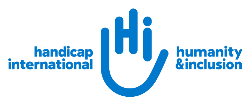| |||
Terms of Reference (ToR) Background and context: Humanity & Inclusion (HI)- Handicap International, is an independent and impartial aid organization working in situations of poverty and exclusion, conflict and disaster. The organization works alongside persons with disabilities and vulnerable populations, acting and bearing witness to respond to their essential needs, improve their living conditions and promote respect for their dignity and fundamental rights. HI has been working with the Rohingya community since 2007, and the interventions expanded after the 2017 influx. In Cox’s Bazar, Bangladesh, more than 969,719 refugees have found shelter after fleeing from Myanmar. Most of these refugees are settled in makeshift camps in the Cox's Bazar district, making it the largest refugee settlement in the world. The influx has presented significant challenges for both the Bangladeshi government and the international humanitarian community, particularly in ensuring the delivery of basic services, such as health care, education, and protection. According to the REACH Age and Disability Inclusion Assessment, by 2021 around 12% of refugees above 2 years are persons with disabilities and 20% of the adults have different types of disabilities. While all the Rohingya refugees live in challenging conditions, persons with disabilities face even more severe barriers in accessing humanitarian services and participating in the humanitarian response. To ensure disability inclusion in the ongoing Rohingya refugee response need to focus on strengthening sector and other humanitarian actors’ response. In the humanitarian response of the Rohingya people, HI is currently implementing project on “Improving disability inclusion in the Rohingya and Host Communities Humanitarian Response” funded by DFAT. Individuals with disabilities are at a heightened risk of social exclusion compared to those without disabilities, as they encounter numerous barriers—attitudinal, environmental, and institutional—that hinder their access to essential services and meaningful participation in humanitarian efforts and daily camp life. Recent research by HI and other organizations reveals critical gaps in reaching people with disabilities in humanitarian actions, despite six years of efforts to promote inclusion. These gaps reflect a lack of data on disabilities, insufficient targeting by actors, poor access to service information, and limited communication capacity of service providers. Among the Rohingya population, there is a significant number, approximately 1500 of individuals who have speech and communication difficulties and approximately 2200 of individuals who have hearing difficulties facing unique barriers to accessing essential services and information. The same need has been identified and discussed in various community project review meetings held by HI on a regular basis. The communication barriers between these individuals and service providers exacerbates their vulnerability. They often struggle to access critical information related to access humanitarian services related to health, protection, WASH, Food security, Education, etc., safety, and their rights. Without effective communication, these individuals are at a higher risk of isolation and exclusion from vital services, including all sectors’ interventions. This is particularly concerning in emergency situations where timely access to accurate information can be lifesaving. To download full ToR, Click this Link. Mentor/Consultants that meet the requirements should submit an expression of interest by |
